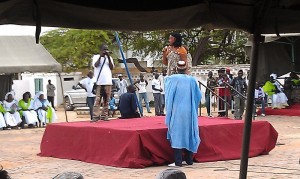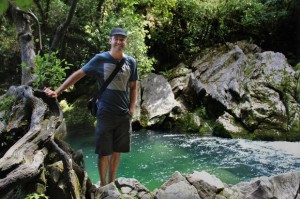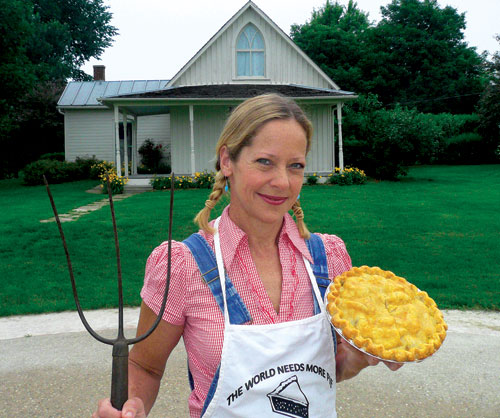
Editor’s Note: Nancy Anderson received a Sponsored Research Grant this year to further her investigation in public health policy in Sub-Sahara Africa. Currently she is co-teaching, Public Health and Economic Development in Sub-Saharan Africa with Tom Womeldorff.
I spent seven weeks in Senegal during Summer 2012 working with PROMETRA International, based in Dakar. The overall mission of PROMETRA is to facilitate and promote the inclusion of traditional healers in the formal health systems throughout the continent of Africa. They received a substantial grant from Bill and Melinda Gates Foundation to carry out a survey of Immunization and Maternal-Child Health Knowledge, Attitudes and Perceptions among traditional healers and community leaders. They invited me to Dakar to review the study findings, undertake discussions with staff as well as traditional healers, and suggest considerations for further research.
While the field survey was complete by the time I arrived, extensive reports were still in draft status, translated from French in English by staff who were not entirely comfortable with English prose writing. I reviewed all available reports in both French and English, interviewed staff as well as senior management/directors, conducted a literature review, and completed extensive revision of the report (including review of data/results) into the English language in consultation with Dr. Erick Gbodossou, the president of PROMETRA International.
In addition, I visited a large traditional healing center in Fatick, interviewed traditional healers who had participated in the study, and visited a “western” community hospital to compare the practices germane to maternal child health in both settings. I participated in the dissemination campaign/march in the city of Dakar, a meeting where the results of the study were disseminated community-wide in an urban setting where community need for maternal-child health services is acute.

An image from a skit about traditional healers at the public dissemination meeting that discussed the study findings from the Gates Foundation funded study. Photo taken by: Nancy Anderson
A number of studies examining community uptake of vaccines have been performed in the developing world, and most have focused on issues of resources, infrastructure, and competency. In my analysis of the study results, I found that the PROMETRA study offered a unique perspective that has not been considered in previous research. Specifically, the significant differences between the endogenous definition of immunization and the “western” biomedical definition are an obstacle to community acceptance of vaccine programs and must be recognized before the target community will be entirely comfortable with the use of vaccines as a component of primary care. In addition, my consideration of study results indicates that the endogenous definition of immunization is in many ways more closely allied with the comprehensive World Health Organization definition of primary care than the biomedical definition. Finally, it is also apparent that the population at highest risk of death from vaccine-preventable disease is also in need of all of the other prerequisites for health and wellbeing. These include respect for endogenous culture and traditions as well as household food security. I have written a draft paper that highlights the findings that I consider most unique to this study, and it is attached electronically.
As important as anything I’ve written so far is what I learned (and not for the first time) about a small corner of Africa. Our newspaper headlines that consistently point the inky spectral finger at tragedy cannot possibly capture the sheer beauty and chaos of everyday life, the unmistakable, unforgettable, and overwhelming odor of ripe mangoes mixed with burning garbage, the resilience of humanity in the face of unimaginable challenges. It is a place that deserves everything and still gets too little. Thank you so much for the Sponsored Research grant, a chance to offer my modest skills and to get so much in return.
Two recent Evergreen graduates, Roderick Campbell ’11 and Jay Bolton ’11 were featured in The Olympian this week for their new web project, Commit Change.com.
Editor’s note: We caught wind that Ron Austin ’91 was making a documentary about Northwest artists, “Bezango, WA.” Recently we got hold of him and gathered a few of his reflections on cartoons and Evergreen.
Dante Garcia (DG): How did cartooning become such a big part of your life?
Ron Austin (RA): My parents never bought a television. I grew up in Seattle during the 1970s and 80s listening to The CBS Radio Mystery Theater, hosted by E.G. Marshall, and reading comics. That was my main source of entertainment. Archie comics and super hero comics were a huge influence, and so were the daily strips in the Seattle P.I. and The Times. I also read MAD Magazine and National Lampoon a lot. The artists behind those cartoons were like rock stars to me. I just assumed this is how everyone felt about comic artists.
DG: What role did Evergreen play in cartooning for you personally and culturally?
RA: Like many people who grew up in the 1980s, and lived in the Northwest, I read The Rocket (a weekly newspaper about music). As far as I remember Matt Groening and Lynda Barry appeared in every issue. So when I chose to go to Evergreen, because of their film studies program, I was also super excited to find out that Matt Groening and Lynda Barry were alumni. At that time in 1986 Matt Groening was just starting to become nationally known. The Simpsons were on the horizon.

Bellingham native Andrew Park, shown enjoying an outing in New Zealand’s Riwaka Valley, did animation work for the much-anticipated movie “The Hobbit: An Unexpected Journey.” Photo from the Bellingham Herald.
The Bellingham Herald recently highlighted Andrew Park ’03 as a local artist working on the animation for the new movie, “The Hobbit: An Unexpected Journey.”
Editor’s Note: Cara Maldonado ’09 posts from NYC in the aftermath of Hurricane Sandy:
Greetings from NY! Luckily I made it through the hurricane. “Sandy” hit about a day and a half after my dance company [Creative Outlet Dance Theatre of Brooklyn] got back from Mexico. It was a bit disorienting to go from eighty degree weather to such a big storm. Some of my friends are still without power. For a time, some were essentially couch surfing in order to get a hot shower, food and heat (which we just got back a week ago). Always the adventure here!
Happy Solstice!
Readers: Enjoy a bit of Cara’s work as she and fellow dancers honor the re-election of our President: Cara is stage left/your right in the capri tights as the video begins. Later she is in black/grey tights.

Beth Howard ’83 lives in the historic American Gothic house, where she runs her Pitchfork Pie Stand. This week she’s taking her pies to the grieving community of Newton, CT.
Evergreen’s very own Pie Lady, Beth Howard ’83 attracted national media attention for her heartfelt response to the school disaster in Newton, CT.
It all started with a facebook post on Friday, December 14: “Overwhelmed and heartbroken by today’s tragedy, I feel like packing up my pie supplies into my RV and driving to Connecticut. If making pie and sharing it with the citizens of Newtown would help ease their pain I would load up a hundred cases of apples and start driving right now.”
Her facebook fans immediately encouraged Beth to make it happen. Within hours of posting a “donate” button on her homepage, she had the funds and the volunteers to drive to Newtown and give away hundreds of pies to the grieving community.
She’s in Newtown for the week and you can keep up with her progress on facebook or read more about Beth’s in Spring 2011’s food issue of the Evergreen Magazine, or refer to Tuesday’s article about Beth in The Atlantic.
Alice Holien ’09, a current Masters of Public Administration student at Evergreen, has just been named as the first Executive Director of a new free health clinic, The Health and Hope Medical Outreach Clinic in Centralia, WA. The faith-based organization will emphasize service to the uninsured, unemployed and undocumented residents of Lewis County.
This month Olympia’s Crisis Clinic celebrated 40 years of continuous service, 24 hours a day. With humble roots at Evergreen, the Crisis Clinic started in an empty dormitory room in 1972. The Olympian has more on the event.
A low estimate of 79 pygmy three-toed sloths (Bradypus pygmaeus) remain on Isla Escudo de Veraguas, a small island off of Panama, making them one of the rarest animals in the world.
In May of 2011, three Evergreen biology students traveled to Panama to study manatees. Their project changed course when they learned of the pygmy sloths living on Isla Escudo de Veraguas. Their survey of these critically endangered pygmy sloths and the work surrounding the project has brought light upon these little creatures along with hope, as the local community embraces a new responsibility. You can learn more in the article released by Scientific American.